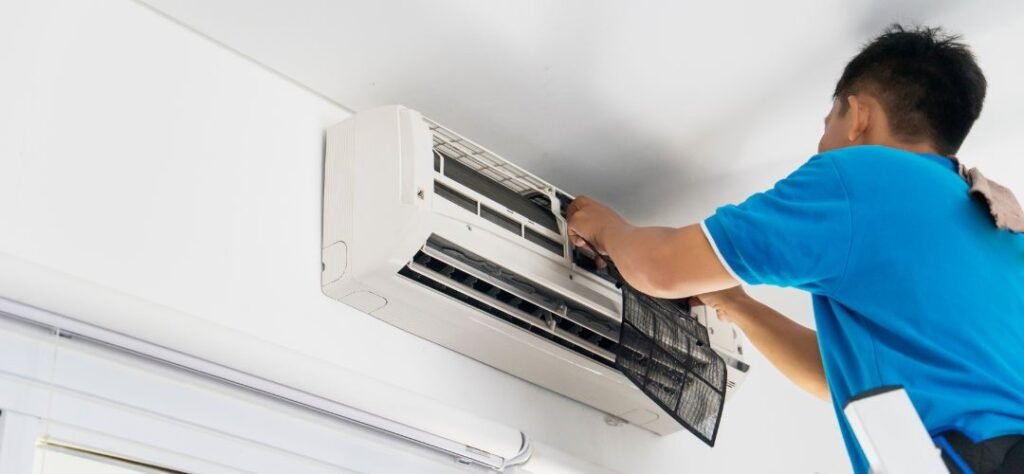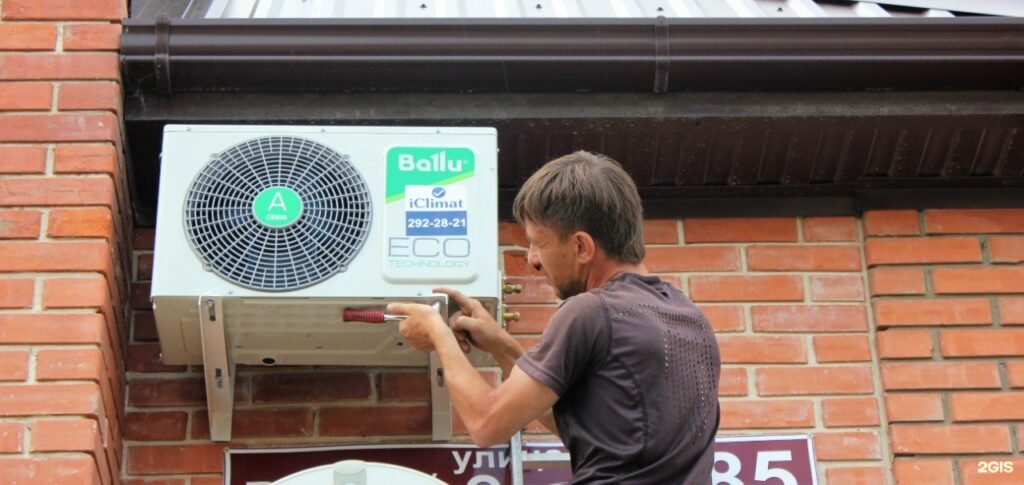Air Conditioning Repair Service: Your Ultimate Guide
Introduction
When your air conditioner breaks down on a sweltering summer day, it can feel like the world is coming to an end. But fear not! Air conditioning repair services are here to save the day. Whether it’s a minor issue or a major malfunction, understanding how these services work can help you stay cool and calm. In this guide, we’ll delve into everything you need to know about air conditioning repair services. From common problems to preventive maintenance, we’ve got you covered.
What is Air Conditioning Repair?
Air conditioning repair involves diagnosing and fixing issues that prevent your AC from functioning correctly. These services are essential to ensure your system runs efficiently, Air Conditioning Repair Service, providing the cool air you need during hot weather. Repair technicians are skilled professionals who can address a wide range of problems, from mechanical failures to electrical issues.
Signs Your Air Conditioner Needs Repair

How do you know when it’s time to call in the experts? Here are some telltale signs:
- Strange Noises: If your AC makes unusual sounds like grinding or squealing, it’s time for a check-up.
- Weak Airflow: Poor airflow could indicate a problem with the compressor or ducts.
- Warm Air: When your AC blows warm air, there’s likely an issue with the refrigerant or thermostat.
- Frequent Cycling: Constant on-and-off cycling may suggest a need for repair.
- High Humidity: If your home feels more humid than usual, your AC might not be working properly.
Common Air Conditioning Problems
Air conditioners are complex machines with many components that can malfunction. Here are some common issues:
- Refrigerant Leaks: Low refrigerant levels can cause your AC to lose cooling power.
- Frozen Evaporator Coils: This can happen if your system isn’t receiving enough air.
- Dirty Condenser Coils: These can reduce the efficiency of your system.
- Fan Problems: If the fan isn’t working properly, it can lead to poor airflow.
- Thermostat Issues: A faulty thermostat can cause inconsistent temperatures.
The Importance of Regular Maintenance
Regular maintenance is the key to a long-lasting air conditioning system. Just like you wouldn’t drive your car without regular oil changes, you shouldn’t run your AC without routine check-ups. Maintenance can prevent minor issues from becoming major repairs and improve your system’s efficiency, saving you money on energy bills.
DIY Troubleshooting Tips
Before calling a professional, there are a few things you can check yourself:
- Check the Thermostat: Ensure it’s set to “cool” and the temperature is lower than the room temperature.
- Replace the Air Filter: A dirty filter can restrict airflow and reduce efficiency.
- Inspect the Circuit Breaker: Make sure the AC unit’s breaker is in the “on” position.
- Clear the Area Around the Unit: Remove any debris or plants that could be obstructing the outdoor unit.
How to Choose the Right Repair Service
Selecting the right repair service can be daunting. Here are some tips to help you make the right choice:
- Research: Look for companies with good reviews and ratings.
- Experience: Choose a service with experienced technicians.
- Licensing and Insurance: Ensure the company is licensed and insured.
- Transparent Pricing: Get an estimate before work begins and ask about any additional costs.
- Guarantees: A reputable company will offer a warranty on their work.
Cost of Air Conditioning Repairs
The cost of repairs can vary widely depending on the issue. Here’s a rough breakdown:
- Minor Repairs: $100 – $300 (e.g., thermostat replacement)
- Moderate Repairs: $300 – $600 (e.g., fixing refrigerant leaks)
- Major Repairs: $600 – $2000+ (e.g., compressor replacement)
Regular maintenance can help prevent costly repairs, making it a worthwhile investment.
Preventive Maintenance Tips
To keep your AC running smoothly, follow these preventive maintenance tips:
- Change Filters Regularly: Replace filters every 1-3 months.
- Clean Coils: Keep evaporator and condenser coils clean.
- Check Refrigerant Levels: Ensure they are at the correct level.
- Inspect Ducts: Look for leaks or blockages in your ductwork.
- Schedule Professional Maintenance: Have a professional inspect your system annually.
Energy Efficiency and Your AC
An energy-efficient air conditioner can save you money and reduce your environmental impact. Here are some tips to improve efficiency:
- Upgrade to a Programmable Thermostat: This can help you control your cooling costs.
- Seal Leaks: Ensure your home is properly insulated to prevent cool air from escaping.
- Regular Maintenance: Keep your system in top shape for optimal performance.
- Upgrade to an Energy-Efficient Model: Consider replacing old units with newer, more efficient models.
When to Replace Your Air Conditioner
Sometimes, repairs aren’t enough, and it’s time for a replacement. Consider these factors:
- Age of the Unit: Most AC units last 10-15 years.
- Frequent Repairs: If you’re constantly fixing your AC, Air Conditioning Repair Service, it may be more cost-effective to replace it.
- Rising Energy Bills: Older units are less efficient and can drive up your energy costs.
- Poor Performance: If your AC struggles to cool your home, it might be time for an upgrade.
Seasonal AC Maintenance Checklist
Keep your AC in top condition with this seasonal maintenance checklist:
- Spring: Clean coils, replace filters, check refrigerant levels, inspect ducts.
- Summer: Monitor thermostat settings, ensure clear airflow around the unit.
- Fall: Schedule professional maintenance, clean and cover the outdoor unit.
- Winter: Turn off and cover the outdoor unit, replace filters.
Emergency Repair Services

Sometimes, you need help fast. Emergency repair services are available 24/7 for urgent issues like:
- Total System Failure: When your AC stops working entirely.
- Refrigerant Leaks: These can be hazardous and require immediate attention.
- Electrical Issues: Problems with wiring or electrical components can be dangerous.
Understanding Warranties and Insurance
Warranties and insurance can provide peace of mind. Here’s what you need to know:
- Manufacturer’s Warranty: Covers parts and labor for a specific period.
- Extended Warranty: Provides additional coverage beyond the manufacturer’s warranty.
- Homeowners Insurance: May cover certain types of damage to your AC unit.
Conclusion
Air Conditioning Repair Service are essential for keeping your home cool and comfortable. By understanding common issues, performing regular maintenance, and knowing when to call a professional, you can ensure your AC system runs efficiently and reliably. Remember, a well-maintained AC not only saves you money but also enhances your comfort during the hottest months.
Frequently Asked Questions (FAQs)
1. How often should I have my air conditioner serviced?
It’s recommended to have your air conditioner serviced at least once a year, preferably in the spring before the cooling season begins.
2. Can I perform air conditioning repairs myself?
While you can handle minor tasks like changing filters or checking the thermostat, most repairs should be left to professionals due to the complexity and safety concerns.
3. What should I do if my air conditioner is leaking water?
Water leaks can be caused by various issues such as a blocked drain pipe or a refrigerant leak. Turn off your AC and call a professional to diagnose and fix the problem.
4. How can I improve the efficiency of my air conditioner?
Regular maintenance, upgrading to a programmable thermostat, sealing leaks, and ensuring proper insulation can all improve your AC’s efficiency.
5. Is it worth repairing an old air conditioner?
If your AC is more than 10-15 years old and requires frequent repairs, it might be more cost-effective to replace it with a newer, more efficient model.
